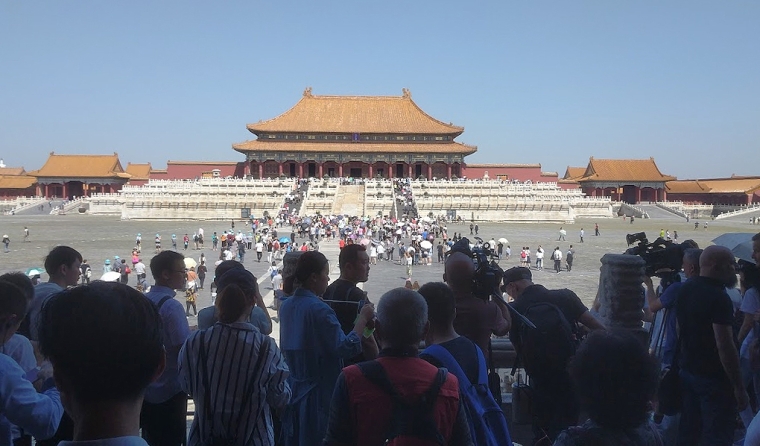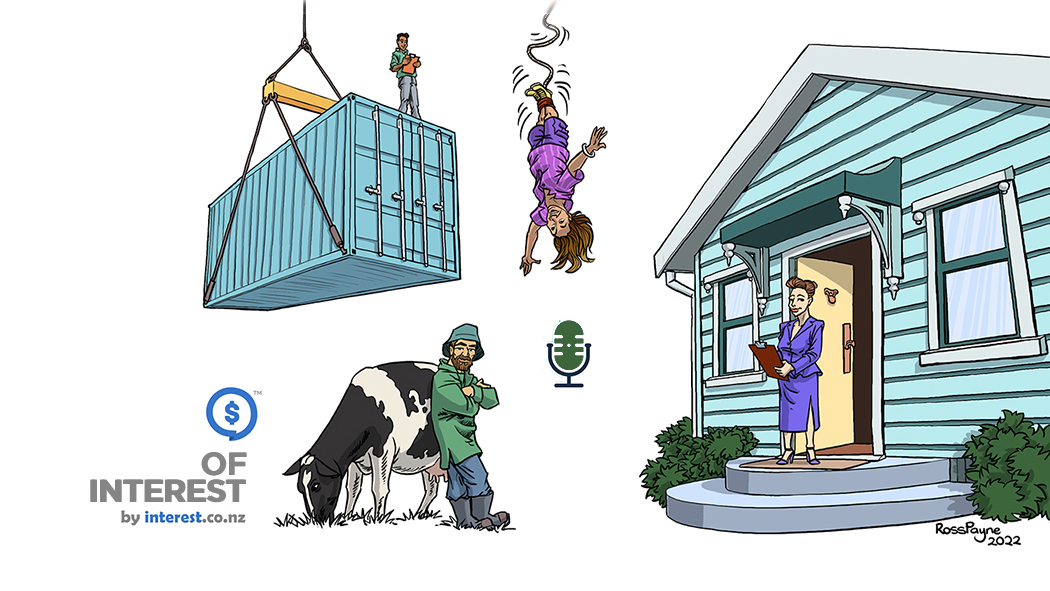
By Gareth Vaughan
After their Government's "clumsily conceived and executed lurch" away from its zero-Covid policy, the Chinese people are "back to work with real energy," says David Mahon.
Mahon, the Beijing-based Managing Director of Mahon China Investment Management, spoke to interest.co.nz in the latest episode of our Of Interest podcast.
"China has to come some distance still to get away from the fear of this virus, the fear it may return. I'm sure that when we get into the autumn there'll be considerable concern amongst a lot of people. Nonetheless China has come through this reasonably well. People are back to work with real energy. They might be a little nervous, they will wear masks on public transport...but people are working, people are very keen to be back at work. Production has kicked in. The Chinese economy is beginning to really move again. So from that measure people have gone back to what they now perceive as a normality," Mahon says.
In the podcast Mahon talks about his recent traveling experience in China including differences in rural and urban areas, the impact from the spread of the omicron Covid variant, and a perception in parts of China that they've been failed by their leaders with public confidence needing to be re-earned. He also talks about what banks are being told, his expectation for the property sector this year, why he sees a year of relative economic strength, and gives his take on changes at the top of the political pyramid following the 20th national congress of the Chinese Communist Party in October.
Mahon also talks about China's relationships with the United States and Russia, suggesting the relationship with the US is "bad and getting worse," and that there's "fury" in the Chinese administration over Russia both initiating a war in Ukraine, and that it has gone on for so long.
Overall he says the "trauma" of Covid has been considerable, but a positive is it's leading to more challenging of authority from the general population, in terms of an attitude of "show me the facts here, tell me why this is something I should comply with."
You can find all episodes of the Of Interest podcast here.

11 Comments
This is a wonderful 48 minutes of Gareth's excellent podcast series. Very insightful. And as I'm primarily working in the Asia region now, valuable. Vietnam trade relations with China have improved dramatically since the end of 2022 and demand for agriculture in particular is huge. Since China has started to re-open, dragon fruit prices have tripled yoy.
Thanks J.C. I enjoyed hearing from David too.
Cheers. I was aware of this initiative but I wonder if it will be possible to compete with Vietnam for export. Shelf life is relatively short.
...there's "fury" in the Chinese administration over Russia both initiating a war in Ukraine, and that it has gone on for so long.
In Russia-Chinese emerging alliance, militarily China is a junior partner, while Russia, continuing with SMO, serves Chinese strategic interests, as is true vice-versa, and provides her the time to get ready for a possible conflict with the US and its lapdogs in the Pacific.
The installation of Russian designed radar and early warning systems is an ongoing and much needed upgrade for China.
a perception in parts of China that they've been failed by their leaders with public confidence needing to be re-earned.
At least we get the chance to vote out the idiots every three years. Who needs a system of politicians appointing politicians
Nz and many other countries system will ensure the next person voted in is of less quality than the one voted out.
Doesn't appear to be anywhere near as bad as when you violently overthrow out of touch monarchies and promise to share the wealth around the peasantry.
Did we say share the wealth? Sorry, we meant 'millions of you will starve or freeze to death'.
The Communist party of today in China and its values are quite different to those of Maos time. Communism with Chinese characteristics (open markets, capitalism) truly is a different, arguably better form. The party is absolutely afraid of social uprising, so do everything they can do prevent it - they fear their people. Any government that fears their people is usually a half decent government, whether its Democracy, Dictatorship, Autocracy, Communism etc.
The only difference with the Chinese Communist party is they pretend they don't fear their people as a show of strength/not to lose face. Generally they walk a line of appeasement to outright pandering to their people, obviously with a few exceptions, particularly if groups have violent tendencies.
We could call the NZ government war mongering asshats because of their parts in various Maori massacres of the past, but its not a useful comparison to todays government.
Today's CCP just worked out how not to make the country broke. In the last 5 years they've interned several million people for "re-education".
Viewing the CCP as benign at almost any point is dangerous.
It's a lot harder to make analogies with the NZ govt, because that at least has some level of transparency and accountability mechanism.
You are joking right?

We welcome your comments below. If you are not already registered, please register to comment
Remember we welcome robust, respectful and insightful debate. We don't welcome abusive or defamatory comments and will de-register those repeatedly making such comments. Our current comment policy is here.